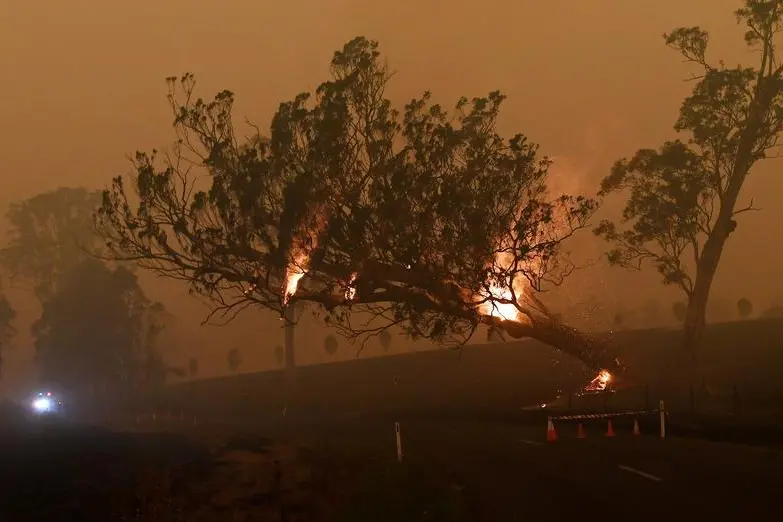PHOTO
LONDON - Australia’s bushfires are tipping the political balance away from climate inaction. Prime Minister Scott Morrison, a global-warming sceptic, says tougher cuts to CO2 emissions come at a price. With 28 Australians dead and an area nearly half the size of the UK literally up in smoke, doing nothing will carry an ever-increasing political cost.
Politically, Australia is the canary in the global climate-change coal mine. In terms of per capita greenhouse gas emissions, it is second only to the United States and the leading exporter of coal and liquefied gas. Meanwhile, the country’s weather is rapidly becoming more extreme. Combined with a three-year drought, record temperatures over the last decade have turned the bush into a tinderbox.
With this and apocalyptic photographs of fire tornados and darkened orange skies as a backdrop, Aussies are understandably questioning Morrison’s stance. A flirtation with carbon taxes in 2012 implies they work: since they were scrapped in 2014 in favour of an incentive-based scheme, emissions have crept up.
Imagine Morrison flipped the script to make big emitters like Qantas factor in the price of carbon, on the basis that Australia now has to become leader not laggard. Last year, the national carrier produced 12.4 million tonnes of CO2. At $26 per tonne, Europe’s traded price of CO2, that would equate to a A$470 million ($322 million) hit to Qantas’ bottom line, just over half last year’s net income. At the airline’s 12 times multiple, that’s A$6 billion of market value.
The impact would be bigger still if the price of carbon rose. But the cost of doing nothing is soaring too. With blazes still raging, the insurance bill is likely to exceed the A$700 million claimed so far. Then there’s the A$2 billion Morrison has pledged to bushfire recovery. Slumping consumer confidence and empty tourist beaches could lop up to 0.4 percentage points off quarterly economic growth, Bank of America reckons.
An enterprising politician would have plenty of ways to sell a tax. Extra revenue would give Canberra scope to cut taxes elsewhere – perhaps in the corporate sphere. Qantas investors – half of whom are not Australian – would not take all the pain, as fares would rise. The only problem would then be public opinion. But as his country burns, Morrison may find he’s on the wrong side of it.
CONTEXT NEWS
- Unprecedented wildfires in Australia have killed 28 people and burned more than 11.2 million hectares of bush since September, intensifying public scrutiny of Prime Minister Scott Morrison’s stance on climate change.
- A Newspoll released on Jan. 13 said Morrison’s approval rating had dropped eight points in the last month to 37%, its lowest since he took over leadership of the ruling Liberal Party in August 2018.
- Scientists say global warming is a factor behind the wildfires, although Morrison’s administration denies any link. Mark Howden, director of the Climate Change Institute at Australian National University, said on Jan. 7 that record temperatures were making fires more intense and widespread.
- Celebrities such as Russell Crowe, who lost a home, are leading the criticism. "Make no mistake. The tragedy unfolding in Australia is climate change-based," the actor said on Jan. 6 in a U.S. Golden Globes acceptance speech delivered in absentia from Australia.
- The government says steeper CO2 emissions cuts would hurt the economy, especially if they targeted coal and gas exports. "In most countries it isn't acceptable to pursue emission-reduction policies that add substantially to the cost of living, destroy jobs, reduce incomes and impede growth," Energy Minister Angus Taylor wrote in The Australian newspaper on Dec. 31.
- The Insurance Council of Australia estimated fire-related loss claims so far at A$700 million, Reuters reported on Jan. 7. Morrison on Jan. 6 pledged A$2 billion to a new National Bushfire Recovery Agency.
(Editing by George Hay and Oliver Taslic)
© Reuters News 2020




















